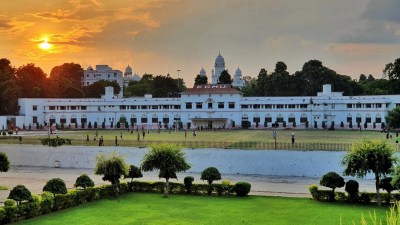Non-conformist, decent, determined
I returned from the cremation of Amar Nath Varma feeling sad and despondent. Sad in having lost an esteemed senior colleague who had endeare...

I returned from the cremation of Amar Nath Varma feeling sad and despondent. Sad in having lost an esteemed senior colleague who had endeared himself to a wide circle of friends and admirers. Despondent because he had not written any memoir even though he was among the very few people who had a ringside view of India8217;s unprecedented economic crisis of 1991 and the dynamics of our liberalisation process in those crucial years.
As Principal Secretary to P.V. Narasimha Rao, he was an ally and friend of all that Dr Manmohan Singh was trying to achieve in a quantum change of attitudes and polices. These have constituted the bedrock of changes we have witnessed over the last decade or so. For those of us like Montek and myself in Delhi and Gopi Arora and J S Baijal in Washington, engaged in the complex negotiations with IMF and World Bank, we received his unflinching support in what was by no means an easy task to accomplish.
Amar Nath was IAS officer of the Madhya Pradesh cadre whom I first met in the Ministry of Commerce where he took keen interest in regional economic cooperation; struggling to do so at a time when high tariffs and trade liberalisation was not a popular policy paradigm. It was only later that I learnt of his relationship with late K.B. Lall who was the mentor for many of us, including myself, during that period. He later moved to serve in a more important assignment with the ESCAP.
On his return to India, both in the Ministry of Industry and as Secretary in the Planning Commission, he continued his efforts towards the modernisation of the Indian economy. Fortunately, by that time the 8216;winds of change8217; were becoming visible in our policy design. It was, however, as the Principal Secretary to Narasimha Rao that he made a lasting contribution in supporting changes which ran counter to the prevalent mindset. Even when the constituency for reforms within the Congress shrank following some state electoral reverses, his commitment to the multi-faceted reform efforts did not wane.
Foreign Investment in India was never popular and at best tolerated as a necessary evil. Amar Nath showed great foresight in supporting foreign investment and took the somewhat controversial but strategic step to set up a Foreign Investment Promotion Board in the Prime Minister8217;s Office under his Chairmanship. During those five years, when he presided over the FIPB, foreign investment got a genuine boost and more than approvals signalling important mindset change.
Consequent on Narasimha Rao demitting office as Prime Minister, he gracefully exited his office of high profile and visibility to lead an ordinary life. We served together as Members on the Board of ICRIER where he took keen interest in the research programme, sound financial management and the need for research to remain relevant.
Most civil servants of his generation having grown in the culture of permissions, regulations and patronage which comes through exercise of authority are averse to changes which deregulation entails. Those who do not are a miniscule. Amar Nath was part of that miniscule; willing to adjust, adapt and innovate.
He showed equal determination in his work as in fighting his terminable illness with both courage and dignity. In his death, we have lost a friend and a valuable colleague willing to go against the dominant mood. Non-conformism is not easy in an established hierarchy. His wife Sudharshan and three caring daughters can draw some solace that he will be missed and remembered well beyond his family as much for his contribution as his endearing decency and gentlemanliness.
- 01
- 02
- 03
- 04
- 05































